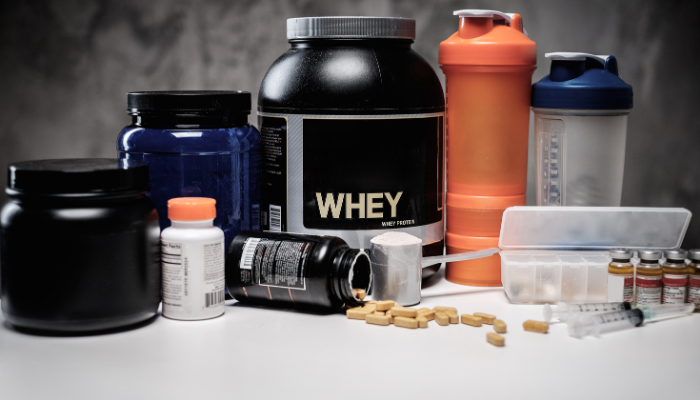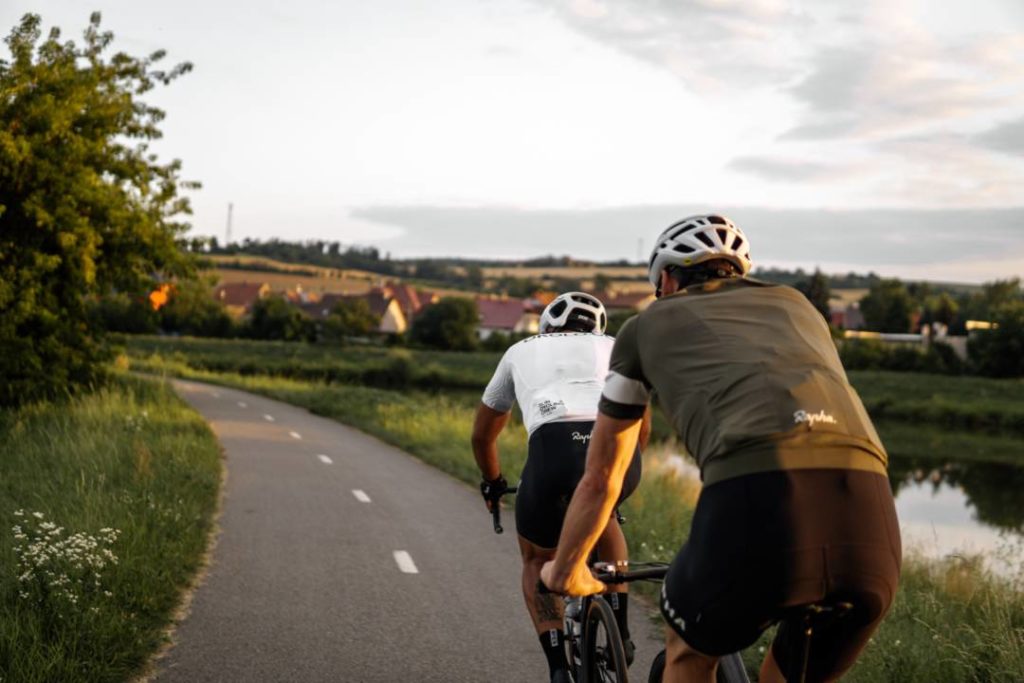Nutrition in cycling goes far beyond what you eat before or after riding your bike. As you train more regularly—whether on the road, on trails, or using indoor simulators like BKOOL—it’s common to wonder if nutritional supplements can make a difference in your performance and recovery. And most importantly, which ones are really worth it.
Today, there’s a huge range of products for athletes: powders, capsules, gels, bars… But not everything on the market is actually useful, especially for amateur cyclists. Knowing what to take, when, and why is key to making your investment in cycling nutrition help you perform better and recover faster, without unnecessary excess.
In this article, we break down the most relevant types of nutritional supplements for cyclists of all levels, whether you’re climbing real mountain passes or training at home with an indoor cycling simulator like BKOOL.
1. Carbohydrates: your main fuel
Carbohydrates are the energy foundation of cycling performance. For workouts lasting more than 60 minutes, their intake becomes essential to maintain intensity and avoid the dreaded “bonk.”
- How much do you need? Between 30 and 90 grams per hour, depending on the duration and intensity of the effort.
- Best times to take them: Before (1–2 hours prior), during (in long sessions), and after (to replenish glycogen).
- Useful formats: Energy gels, maltodextrin/fructose powders for your bottle, and energy bars. Each one has its ideal moment depending on the activity.
The right combination of these formats will help you maintain your pace, whether on a long ride or a virtual climb in BKOOL.
2. Isotonic drinks: more than simple hydration
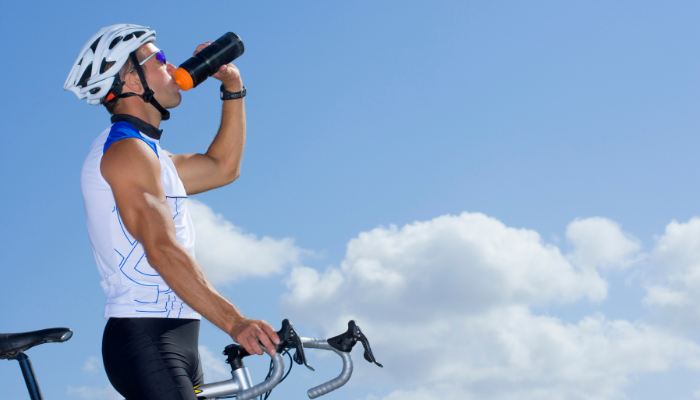
During exercise, you lose not only water but also minerals like sodium, potassium, and magnesium. A good isotonic drink helps maintain fluid balance and prevent cramps.
- When to take them? During efforts longer than 60 minutes, especially in hot conditions or when sweating heavily.
- Benefits: They rehydrate, replenish electrolytes, and provide fast-absorbing carbohydrates.
- Tip: Make sure it contains an adequate sodium ratio (300–500 mg per liter), which is key for proper water absorption.
In indoor simulations with BKOOL, where sweating can be more intense due to lack of wind, isotonic drinks are especially useful.
3. Protein: key for muscle recovery
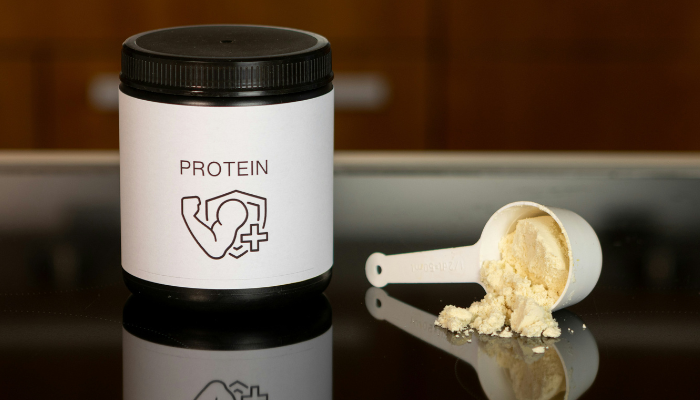
After every demanding training session, your muscles need protein to repair and grow. While you can get it from natural foods, a nutritional supplement in shake form makes intake easier right after finishing.
- Recommended dose: 20–30 g of protein post-exercise, ideally with some carbohydrates to improve absorption.
- Most common type: Whey protein, for its high bioavailability and fast absorption.
- Importance in cycling nutrition: Crucial on load days or after consecutive training sessions, whether outdoors or in BKOOL.
4. Creatine: power for cyclists, not just bodybuilders
Although better known in strength sports, creatine also has benefits for cyclists, especially during repeated efforts or sprints.
- What does it do? Increases phosphocreatine availability, improving your ability to perform short, intense efforts.
- Benefits for cycling: Enhances performance in intervals, short climbs, or time-trial-type simulations.
- Dosage: 3–5 g daily. Needs consistent use to be effective (it’s not an “emergency” supplement).
It’s a scientifically backed nutritional supplement that’s increasingly used by competitive cyclists.
5. Amino acids (BCAA and EAA): extra muscle support
Essential (EAA) and branched-chain (BCAA) amino acids are the building blocks of protein. Their use as a nutritional supplement makes sense when there’s significant muscle breakdown or you train while fasting.
- BCAA: Leucine, isoleucine, and valine. Taken during or after exercise to minimize catabolism.
- EAA: Include all 9 essential amino acids, recommended for complete recovery.
- When to use them: During long rides, intense training blocks, or when you can’t eat properly right after.
They don’t replace good post-workout protein but are a useful complement if you train more than once a day.
6. Micronutrients: the forgotten essentials
Vitamins and minerals are also part of cycling nutrition. Though they don’t provide direct energy, they’re essential for muscle function, metabolism, and the immune system.
- Iron: Especially important for cyclists who train a lot, women, or those on vegetarian diets.
- Magnesium and potassium: Prevent cramps and support muscle contraction.
- Vitamin D and B12: Key for energy and muscle function.
If you have persistent fatigue, recovery issues, or frequent cramps, consider checking your levels with a professional.
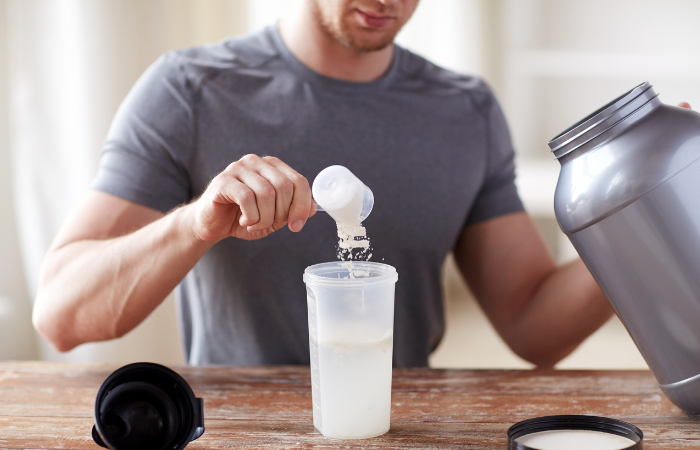
7. Zinc: the mineral that strengthens your immune system
Zinc is an essential micronutrient that often goes unnoticed, yet plays key roles in a cyclist’s body, especially during intense training or periods of high physical stress.
- What is it for? Supports immune function, protein synthesis, muscle recovery, and carbohydrate metabolism.
- When to supplement: During high training loads, cold seasons, or when your immunity feels low. Also helpful if your diet lacks foods like meat, seafood, or nuts.
- Benefits for cycling: Prevents respiratory infections (very common after long efforts), speeds up tissue repair, and helps maintain efficient metabolism.
Although it’s often included in multivitamins, a specific zinc nutritional supplement can be useful during demanding training plans, especially if you’re preparing for challenges like our 2025 Tour of the Americas.
8. Recovery drinks: your ally after hard training
Muscle recovery supplements are designed specifically to speed up regeneration after exertion. They often combine carbohydrates, protein, minerals, and sometimes BCAA or glutamine.
- When to take them? Right after exercise, especially if you’ve trained for over an hour or on consecutive days with little rest.
- Common format: Powder for shakes, ready-to-drink bottles, or single-serving sachets. Very convenient after a session, both at home and after a long ride.
- Benefits: Refill glycogen stores, repair muscle fibers, and reduce the risk of prolonged fatigue or overtraining.
They’re ideal after tough stages in the BKOOL simulator or long rides with significant elevation gain.
Join the 2025 Tour of the Americas and win a supplement pack
BKOOL makes it easy to put your sports nutrition to the test. If you participate in the 2025 Tour of the Americas and complete all stages of the virtual event, you’ll be entered into a drawing for a AMIX Performance sports supplement pack.
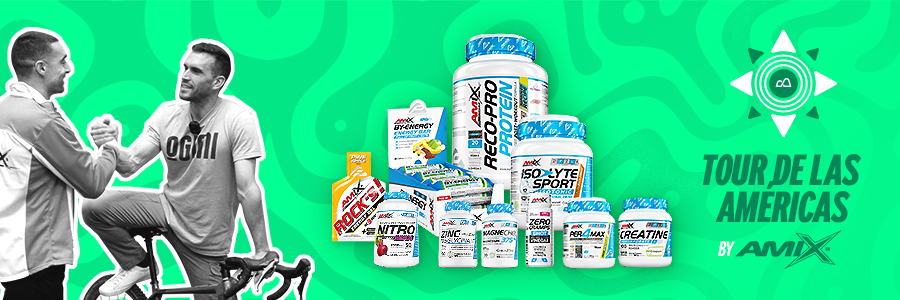
This includes everything you need to support your performance: gels, isotonic drinks, protein, creatine, anti-cramp supplements, and recovery aids. You can see the full details and how to participate in this article.
Conclusion: supplement smart, train strong
Supplementing in cycling isn’t mandatory, but when used wisely, it can make a difference. The key is to match the nutritional supplement to your training type (indoor or outdoor), your level, and your personal needs.
Start with the basics: carbs, isotonic drinks, and protein, and try other products like creatine or amino acids as you progress. Take care of your body before, during, and after training. With a solid cycling nutrition foundation, your performance will thank you—on the road or at home with BKOOL.
BKOOL is the most complete cycling simulator on the market, try it FREE for 7 days!
 Go to BKOOL
Go to BKOOL
